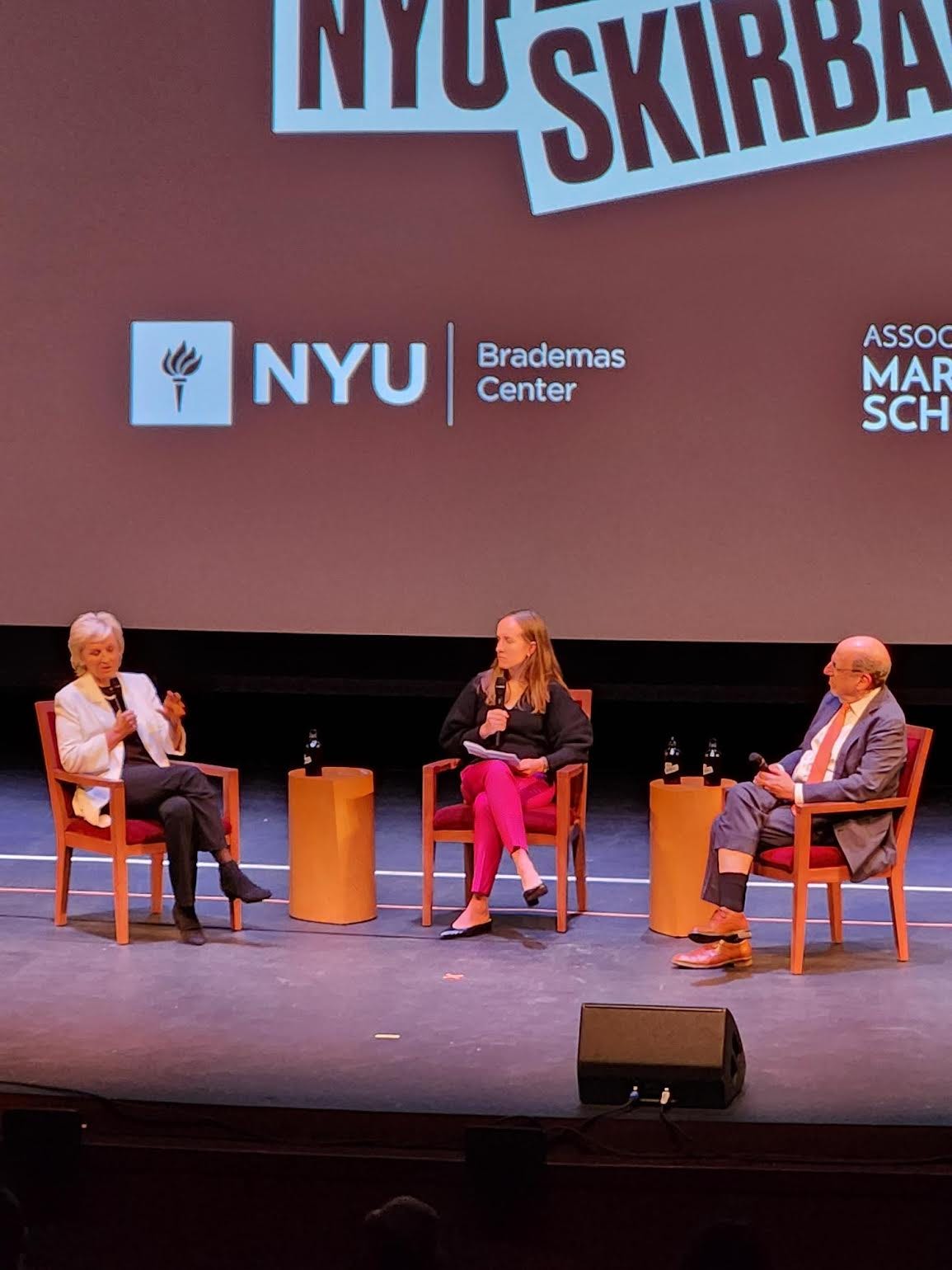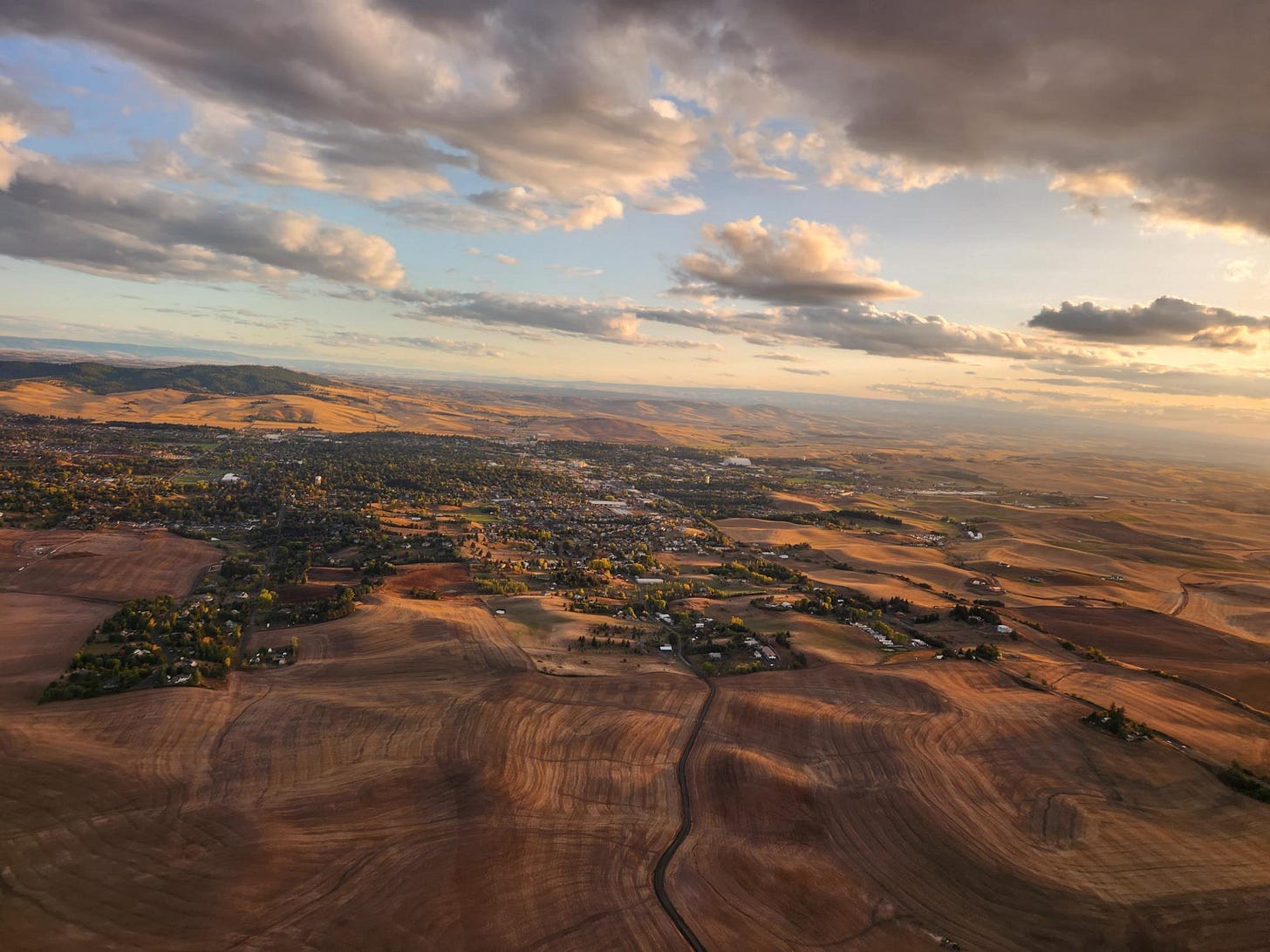Journalism Is Not Dead!
It's in our hands....

Last night I attended a symposium at NYU Skirball Center about the future of journalism and its role in a polarized world.
I went because my close friend Tina Brown was talking and this is a topic I care about passionately. Traditional journalism, let’s face it, is in crisis. Deep-dives are expensive and newsrooms are shrinking and cutting budgets.
As I listened, I felt so grateful to all of you for supporting my work here. And so grateful for the Substack platform and for the direct dialogue I am able to have with all of you. I don’t just learn from my sources. I learn from you, especially when you write me. I learn from the people who tell me they hate what I write. That’s OK. I’m eager to learn and to discuss. The one thing worse for democracy than a heated, over-the-top conversation is no conversation at all. Thus, the danger of living in a country as polarized as this one is that the Right and the Left don’t talk to each other. One looks down on the other and vice versa. Each thinks they are in possession of true facts and the other team is deluded.
I’ve felt the division keenly recently because I’ve been spending a great teal of time far from New York in the Pacific North West reporting for the book I’m writing with James Patterson about the awful murders in Moscow, Idaho.
Moscow is a mostly liberal town, but Idaho, as you know, is deeply Republican. Many of the people I’ve interviewed bring their guns into the room with them.
One of the great privileges of reporting this book with Jim is getting to know people and communities out West I would otherwise have no or little connection with and finding common ground.
What I’ve found so uplifting about small town America is that people choose to prioritize people. They choose to live in a place where the neighborhood counts for more than money, or religion, or politics. Their neighbor’s well-being matters far more to them than what’s going on on CNN or Fox News. (Neither of which are on the TV screens in bars. Those are dedicated to football, and more football.)
When something horrific happens, they band together. Their strength lies in togetherness.
It occurred to me that in some ways we all want to experience that community feeling. That is why we scroll our Instagram feeds at night: to see what our friends are doing, to find what binds us, not what drives us apart, to be reminded of the smallness of the world, not of distance between us.
And that – right there – it seems to me is the future of journalism.
At NYU last night, Tina Brown said that perhaps the American press needs to become more like the British press. This would mean that the high-brow needs to meet the low-brow, and important stories need to be told in a populist way via mediums like TikTok and emails to which people actually pay attention. (Note, that’s a little plug for this newsletter!)
I think she is right. I think that instead of snobbishly bashing Donald Trump for his short posts (as some do), we should learn for ourselves how to better communicate with the short-form so we can meet him tit for tat.
We journalists need to evolve with the times – or die.
Once again, from the bottom of my heart, thank you for letting me live!
With Gratitude,
Vicky





Free journalism, unbiased and based on facts is what will keep democracies alive. In the USA and in Europe. All countries where journalists are hunted down, put in jail and censored in any way, will lead to a totalitarian regime. Hungary put all press critical of Orban out of business. Orban is now blocking aid to Ukraine and uses his veto power to secure €10 Billion that will end up with his corrupt friends. Free journalism is dead in Hungary and now the government wants to limit access to foreign news that is critical of Orban.
In Russia and China free press does not exist. It is all propaganda. In the USA some channels are also just propaganda and not based on facts. That is dangerous. All social media cares about is interaction so it will keep people in their ‘own’ information bubble so they might never see a fact again. Result: Democracy is slowly slipping away. Putin and Ci are cheering on the sidelines and do not understand why we do not stand up for a journalists, our ‘information warriors’ in the age of disinformation and propaganda. We thank you for your service!!
Journalism serves a purpose. That purpose has changed by greed, bias and politics. It’s a power game. Journalists are manipulated and manipulate. I liked this part especially “They choose to live in a place where the neighborhood counts for more than money, or religion, or politics.” It gives hope which, is more than I can say about journalism.